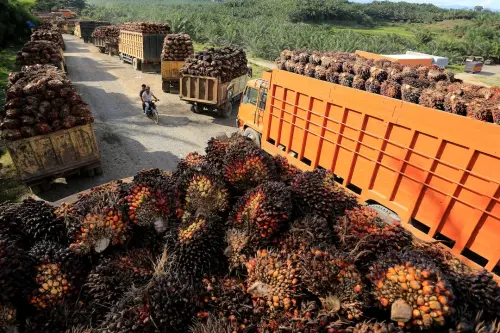In February, Indonesia's crude and refined palm oil exports surged by 62.2% compared to the previous month, reaching a four-month high, as reported by the statistics bureau on Monday. This increase was attributed to Jakarta's reduction of export taxes, drawing buyers away from Malaysia.
As the world's largest producer of palm oil, Indonesia's heightened export levels are anticipated to reduce stocks and bolster prices, currently holding a premium over rival soyoil. Data from the bureau indicated that Indonesia shipped 2.06 million metric tons of crude and refined palm oil in February, marking the highest export volume since October. This figure represented a 45.1% increase from February 2024.
It is noteworthy that the bureau's data does not encompass palm kernel oil, oleochemicals, and biodiesel. Additional data from Indonesia's palm oil association GAPKI, typically released later, may present varying export figures covering more product categories.
Anilkumar Bagani, research head at the Mumbai-based vegetable oil broker Sunvin Group, explained that the decline in export taxes led to lower Indonesian palm oil prices compared to Malaysia's, prompting a shift in buyers towards Indonesia. Consequently, Malaysia experienced a 16.27% decrease in palm oil exports in February, dropping to 1 million tons.
Indonesia adjusted its crude palm oil (CPO) reference price for February, resulting in a reduction of the export tax to $124 per ton from $178 in January. Despite rising exports and the implementation of a 40% mandatory biodiesel blend, experts predict that Indonesia's palm oil stocks will not see a significant increase soon.
Notably, the sustained export momentum of palm oil, even with its premium over soybean oil, is expected to support its pricing. This market is mainly competitive against supplies of soyoil and sunflower oil from Argentina, Brazil, Russia, and Ukraine.
